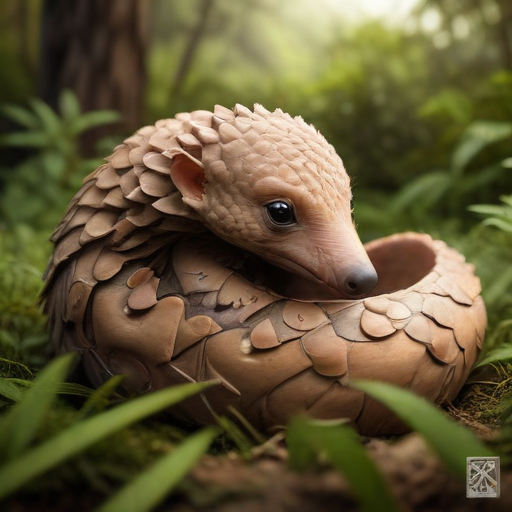On this Giving Tuesday, a young pangolin in Nigeria is in urgent need of your help. Pangolins are facing a severe risk of extinction due to illegal poaching, but thanks to the unwavering dedication of conservation teams, this particular baby pangolin has been rescued.
Meet Tikki, an eight-month-old pangolin pup who was saved from a bushmeat market under dire conditions. Found crammed into a dirty sack and suffering from a severe tick infestation, Tikki was in a deplorable state when she came into the care of the Greenfingers Wildlife Conservation Initiative (GWCI). Hundreds of ticks clung to her body, and the team had to painstakingly remove them by hand.
Tikki’s survival depends on specialized care, which includes a specially formulated milk that will provide her with the nutrition she desperately needs over the next few months. The cost for this essential food is $100 (roughly £77) a month, a substantial amount given that the minimum wage in Nigeria is less than $42 (£32.50) per month.
Beyond Tikki, GWCI continues to rescue pangolins from the horrors of the bushmeat trade and trafficking, leading to an average of many rescued animals at their shelter needing similar specialized care. Your contribution could be crucial in providing the necessary resources to save not just Tikki, but many others like her.
Pangolins, known for their protective keratin scales, are nearly immune to natural predators, making them vulnerable only to human threat. Without dedicated conservation efforts and the generosity of animal lovers, their survival hangs in the balance.
This Giving Tuesday, making a donation can truly have a significant impact on the lives of these extraordinary creatures and the conservation future of our planet. Share this plea with your family and friends, and help spread the word about Tikki and other rescues that are in dire need of support.
With your compassion and assistance, we can help make a difference in the fight against pangolin extinction and ensure a brighter future for Tikki and her kin. Together, we can be the voice for the voiceless and take meaningful steps toward preserving biodiversity in our world.
